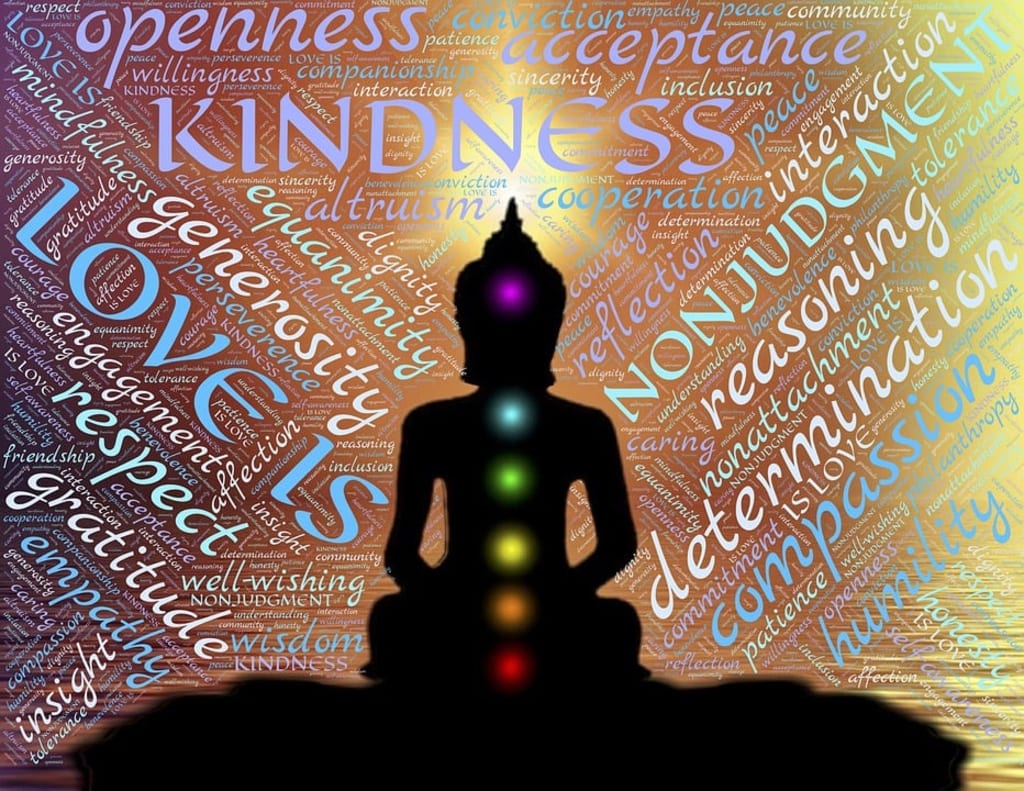The power of forgiveness and letting go of grudges
Forgiveness is a powerful tool that can help individuals heal and move on from painful experiences.

Forgiveness is a powerful tool that can help individuals heal and move on from painful experiences. Holding grudges and refusing to forgive can lead to negative emotions such as anger, resentment, and bitterness. By learning to forgive, individuals can free themselves from these negative emotions and experience greater peace, happiness, and well-being.
One way to begin the process of forgiveness is to acknowledge the hurt and pain that was caused by the situation or person. It is important to allow oneself to feel the emotions associated with the hurt, such as sadness or anger, and to accept that these feelings are valid.
Next, it is helpful to try to understand the perspective of the person who caused the hurt or pain. This does not mean excusing their behavior or denying the harm caused, but rather trying to see things from their point of view. This can help individuals to develop empathy and compassion, which are essential for the forgiveness process.
It is also important to recognize the benefits of forgiveness, such as reduced stress and improved relationships. Forgiveness is not always easy, and it may take time and effort to work through the emotions and come to a place of forgiveness. However, with practice and persistence, forgiveness can become a natural and empowering part of one's life.
Letting go of grudges is an important aspect of forgiveness. Holding onto grudges can be damaging to one's mental and emotional health, and can prevent individuals from experiencing true peace and happiness. By learning to let go of grudges and practicing forgiveness, individuals can experience greater freedom, joy, and fulfillment in their lives.
Forgiveness is a powerful tool that can help individuals to heal and move forward from past hurts and grievances. Letting go of grudges and resentment can help to reduce stress, improve relationships, and promote emotional well-being. However, forgiveness can be difficult and may require a conscious effort to cultivate. Here are some strategies for developing forgiveness and letting go of grudges:
Acknowledge your emotions: Before forgiveness can occur, it is important to recognize and acknowledge the emotions associated with the hurt or grievance. It is okay to feel angry, hurt, or betrayed, and suppressing these emotions can hinder the forgiveness process.
Practice empathy: Put yourself in the shoes of the person who has wronged you and try to understand their perspective. This can help to foster empathy and compassion, and may make it easier to forgive.
Separate the person from the action: While you may not agree with or condone the actions of the person who has wronged you, it can be helpful to separate their actions from who they are as a person. This can make it easier to forgive and move forward.
Practice mindfulness: Mindfulness can help to cultivate awareness of your thoughts and emotions, and can be a useful tool for managing negative emotions associated with hurt or grievances. Mindfulness practices such as meditation or deep breathing can help to reduce stress and promote emotional well-being.
Seek support: Forgiveness can be difficult, and seeking support from friends, family, or a mental health professional can be helpful in processing emotions and developing forgiveness.
Ultimately, forgiveness is a personal choice and may take time and effort to cultivate. However, by acknowledging emotions, practicing empathy, separating the person from the action, practicing mindfulness, and seeking support, individuals can develop forgiveness and let go of grudges, promoting emotional well-being and healthier relationships.
Another way to let go of grudges and practice forgiveness is to focus on empathy and understanding. Try to put yourself in the other person's shoes and see things from their perspective. This can help you gain a better understanding of why they may have acted the way they did and can lead to greater empathy and forgiveness.
About the Creator
The Lost Writer
As the Lost Writer, I am on a mission to explore the depths of the human experience and share my findings with the world. Whether I'm delving into the intricacies of love, loss, or self-discovery.






Comments
There are no comments for this story
Be the first to respond and start the conversation.